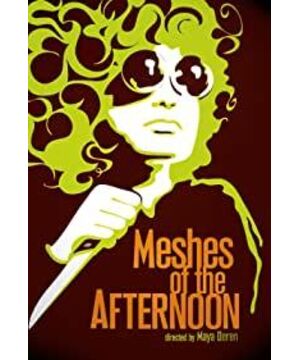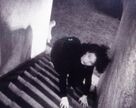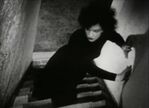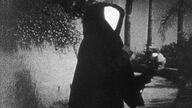Excerpted from: You Fei. The World Film Theory Trend [M]. China Radio and Television Press, 2002.
Lost Afternoon is Deren's most important work, in which Deren herself plays the emotionally fluctuating, erratic protagonist who is frightened by a series of apparently trivial events, leading to paranoia and delusions of persecution. As it deals with the representation of sexual attraction and fear of women, Deren believes that her films "externalize an inner world to the extent that the outer world is as perceptible". Deren stood behind the glass window, holding the glass with both hands, as if she was trapped in a cage, her bloodless face showed fragility, and her slightly panicked eyes revealed a bit of melancholy. "This classic image has become a registered trademark of American experimental film. In the film, Deren repeatedly uses a series of dominant motives (including a shadow walking dreamily along a garden path, a flower, a key, a knife, and a telephone receiver as the protagonist attempts to climb a flight of stairs), which This approach became a precursor to the use of similar repetitive dominant motives in Alain Resnais' "Last Year at Marienbad" more than a decade later. Deren attacked objective reality by transforming knives into keys, flowers into knives, and the use of lenses, camera angles, and slow motion to make climbing stairs so difficult and painful. Deren also makes comprehensive allusions to chastity, sexuality, and death, from which the viewer cannot separate from the intricately interwoven themes for a definitive and coherent interpretation. These dominant motives intertwine musically rather than rationally, drawing the audience into a systematic labyrinth that cannot be surpassed. In this way, the film builds a clear bridge between surreal films like "An Andalusian Dog" and dreamlike realities like "Last Year at Marienbad", "Masquerade" and "Eight and a Half" bridge.
View more about Meshes of the Afternoon reviews







